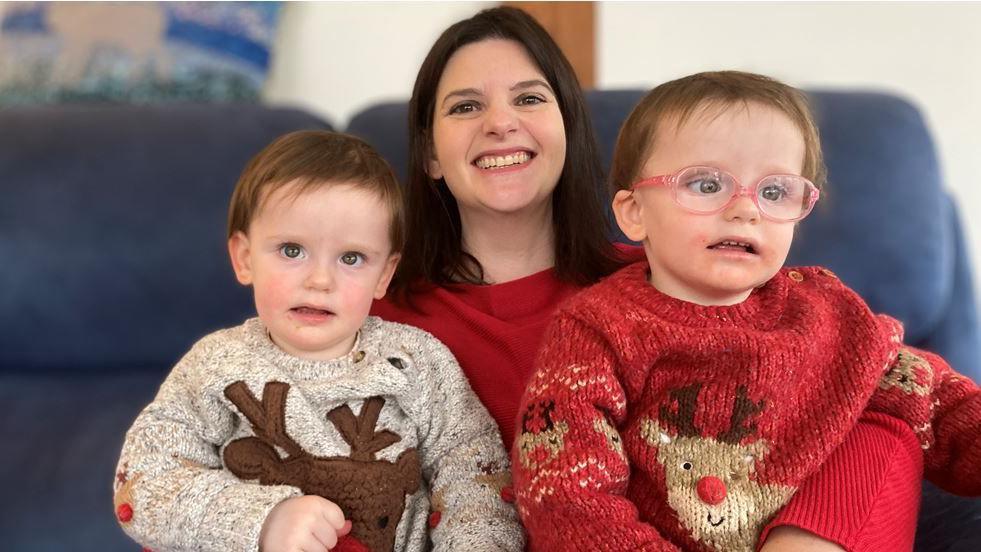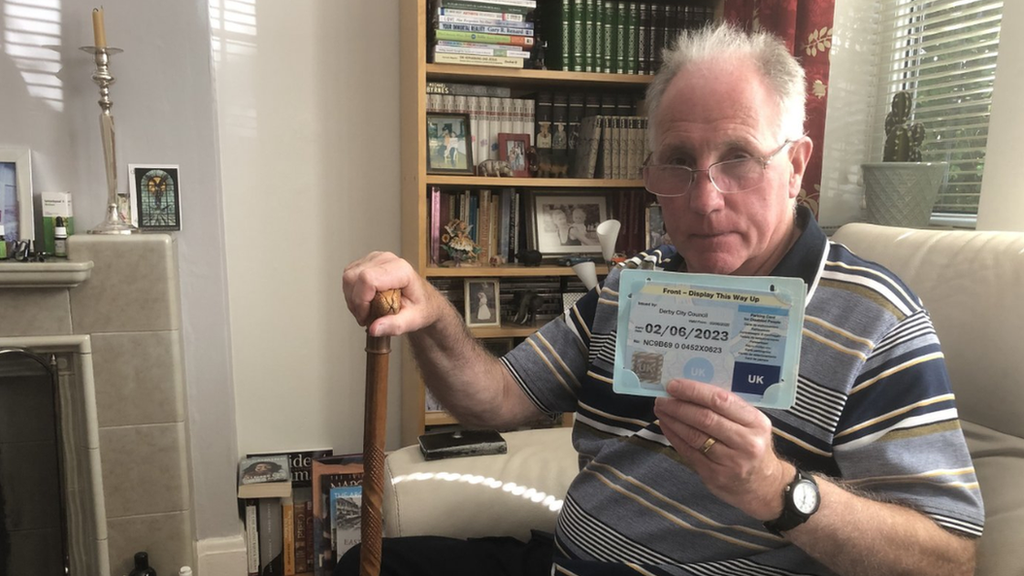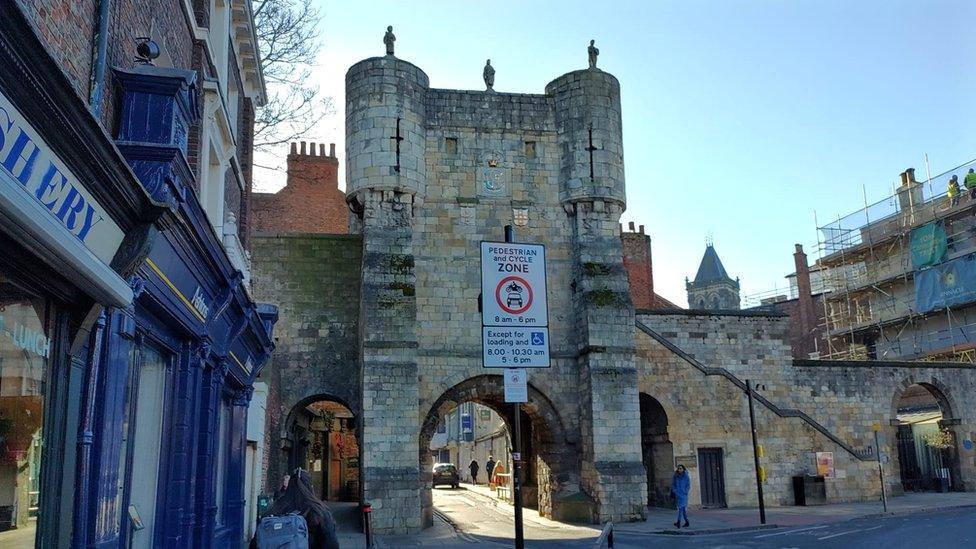Blue badge denied for toddlers with cerebral palsy

Sarah wants a blue badge for her twins with cerebral palsy, Iris (left) and Astrid
- Published
A woman has expressed her frustration at being denied a blue badge for her twin toddlers, who have cerebral palsy.
Sarah, from Meopham, Kent, said her two-year-old daughters, Iris and Astrid, need disabled parking to transport their walkers and for access to medical appointments.
She said they had stopped going swimming and to baby and toddler groups because it was "too much hassle".
Kent County Council said government guidance "provides a very clear set of eligibility criteria for children under three which were not met at initial assessment or appeal".
Sarah's twins were diagnosed with cerebral palsy in July and she has been trying unsuccessfully to obtain a blue badge ever since.
They have bulky equipment which helps them to walk as they struggle to stand on their own.
She said: "The girls both have an increasing number of hospital appointments, sometimes up to London.
"Astrid can't stand without her walker, which we need to transport about, and it's really bulky."
"It is really difficult being denied a blue badge. It is frustrating."
She continued: "It makes their world a bit smaller and stops them having the same opportunities as other children."
According to government guidelines the twins could be eligible for a blue badge when they are three next November.
'Deprived of opportunities'
Sarah claimed the system was unfair.
She said: "By depriving them of opportunities now to walk and build up their strength it will have a big impact in the future on their development."
"The rules are bureaucratic and don't take into allowance the needs of the individual children."
A spokesman for Kent County Council (KCC), which issues blue badges locally, said: "We understand that the council’s decision is disappointing.
"We consider all blue badge applications for children under three as special cases but also have a responsibility to be fair and consistent."
“When children reach the age of three, the eligibility guidance allows for a greater scope in assessment of how children mobilise independently and KCC is always happy to reassess children at this time.”
Follow BBC South East on Facebook, external, on X, external, and on Instagram, external. Send your story ideas to southeasttoday@bbc.co.uk, external.
Related topics
You might be interested in
- Published22 August 2023

- Published7 August 2023
